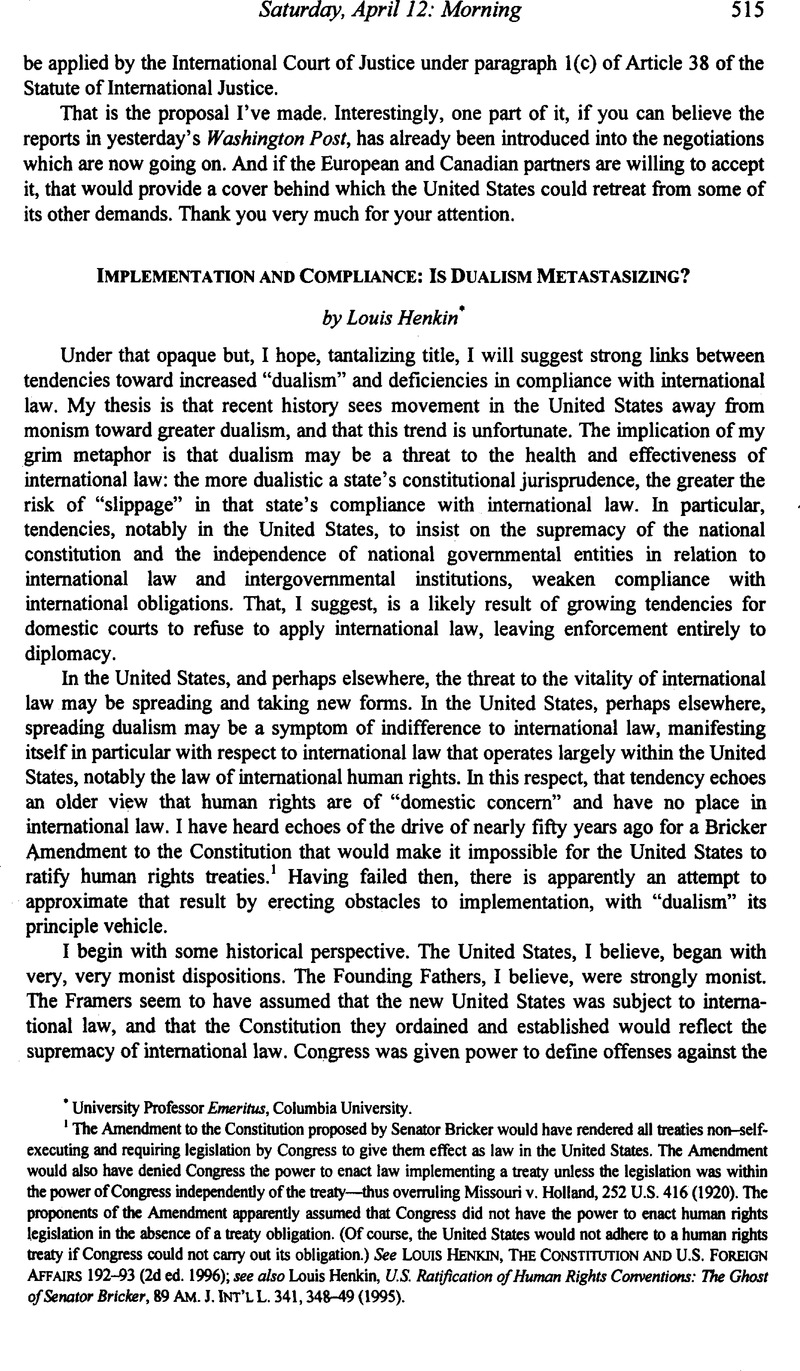Published online by Cambridge University Press: 28 February 2017

1 The Amendment to the Constitution proposed by Senator Bricker would have rendered all treaties non-self-executing and requiring legislation by Congress to give them effect as law in the United States. The Amendment would also have denied Congress the power to enact law implementing a treaty unless the legislation was within the power of Congress independently of the treaty—thus overruling Missouri v. Holland, 252 U.S. 416 (1920). The proponents of the Amendment apparently assumed that Congress did not have the power to enact human rights legislation in the absence of a treaty obligation. (Of course, the United States would not adhere to a human rights treaty if Congress could not carry out its obligation.) See Henkin, Louis, The Constitution and U.S. Foreign Affairs 192-93 (2d ed. 1996)CrossRefGoogle Scholar; see also Henkin, Louis, U.S. Ratification of Human Rights Conventions: The Ghost of Senator Bricker, 89 Am. J. Int’l L. 341, 348-49 (1995)CrossRefGoogle Scholar.
2 Judiciary Act of 1789, 1 Stat. 7377, later amended and codified at 28 U.S.C. § 1350 (1994).
3 252 U.S. 416, 433 (1920).
4 130 U.S. 581 (1889).
5 In re Ross, 140 U.S. 453 (1891).
6 Ker v. Illinois, 119 U.S. 436 (1886).
7 Whitney v. Robertson, 124 U.S. 190 (1888).
8 Cook v. United States, 288 U.S. 102 (1933).
9 175 U.S. 677 (1900).
10 Garcia-Mir v. Meese, 788 F.2d 1446 (11th Cir. 1986), cert, denied, 479 U.S. 1886 (1986).
11 U.S. v. Alvarez-Machain, 504 U.S. 655 (1992).
12 This was upheld in Diggs v. Schultz, 470 F.2d 461 (D.C. Cir. 1972), cert, denied, 411 U.S. 931 (1973).